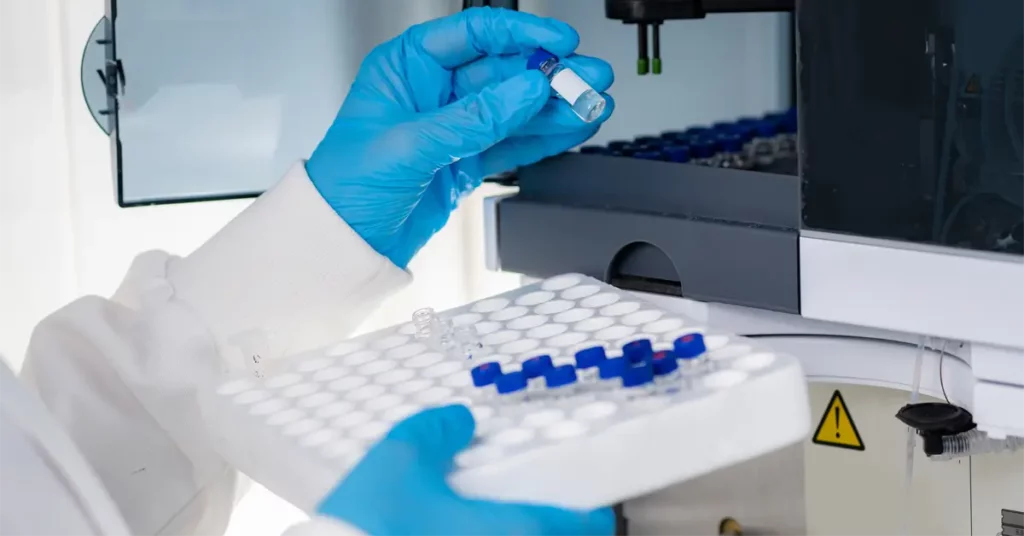Clinical trials, also known as research studies, play a vital role in the medical field as they allow healthcare providers (HCPs), pharmaceutical companies and clinical research organizations (CROs) to determine the safety and efficacy of new treatments and medications. However, the complexity of the clinical trial process and the different phases involved can often cause confusion for both HCPs and patients. This is why it is crucial to have a clear understanding of phases of clinical trials, which can maximize patient outcomes and advance medical knowledge. These trials may look at new ways of treating a disease or condition and determine whether a new treatment is safe and effective. With the integration of remote patient monitoring (RPM) technology, clinical trials have become even more accessible to a larger pool of participants. This article provides a comprehensive overview of clinical trial phases to help better understand the process.
The Clinical Trial Phases
Clinical trials are a crucial step in determining the safety and efficacy of new drugs and treatments. Understanding the different phases of clinical trials is important for HCP, pharmaceutical companies and CROs to make informed decisions about treatments and medications.
Phase I Trials: Determining Safety
Phase 1 clinical trials are the first step in testing a new drug or treatment. These trials are designed to evaluate the safety of the drug, determine the appropriate dose, and identify any side effects. They usually involve a small group of healthy volunteers or patients who have the condition the treatment is designed to treat.
In phase 1 trials, participants may experience side effects or adverse events, which are closely monitored and reported to the research team. The main focus of phase 1 trials is to determine if the treatment is safe, not its efficacy.
Phase II Trials: Evaluating Efficacy
In phase 2 trials, a larger group of patients are involved to determine if the treatment is effective in treating the condition. This phase focuses on the efficacy of the treatment, as well as its safety and any potential side effects.
Participants in phase 2 trials are closely monitored and their responses to the treatment are recorded. This phase is critical for determining if the treatment should move on to phase 3 trials, where it will be tested on a larger scale.
Phase III Trials: Confirming Efficacy and Safety
Phase 3 trials are the final step before a new drug or treatment is considered for FDA approval. These trials involve a large group of patients and are designed to confirm the efficacy and safety of the treatment. Participants in phase 3 trials are carefully selected to ensure the results are representative of the larger population.
The data collected during phase 3 trials is used to determine if the treatment should be approved by the Food and Drug Administration (FDA) and made available to the public.
Phase IV Trials: Monitoring Long-term Efficacy and Safety
Phase 4 trials, also known as post-approval trials, are conducted after a treatment has been approved and made available to the public. These trials are designed to monitor the long-term safety and efficacy of the treatment and identify any rare side effects that may have been missed in earlier phases.
Other Types of Clinical Trials
Phase 0 trials are small trials that evaluate the safety of a new treatment before it is tested in a phase 1 trial. Some cancer clinical trials can also include a comparison of the new treatment to the standard treatment for the type of cancer. These trials are done to determine if the new treatment is better or more effective than the standard treatment.
Clinical trials can last for several years and can involve different doses of the new drug or treatment. The FDA may take several months to review and approve a new treatment after the clinical trial process is complete.
In conclusion, clinical trials are an important step in the process of getting FDA approval for a new drug or treatment. These trials usually compare a new treatment to a standard treatment or placebo to determine whether the new treatment is better and safe. The various phases of clinical research, from phase 1 to phase 4, are designed to evaluate the safety, efficacy, and long-term impact of a new treatment.
Maximizing Patient Outcomes through Clinical Trial Phases
The Importance of Clinical Trial Phases
Phases of clinical trials are critical for the maximization of patient outcomes by the thorough evaluation of the safety and efficacy of treatments and medications. This allows HCPs, pharmaceutical companies, and CROs to make informed decisions about the best course of treatment for their patients.
The Role of Clinical Trial Results
Clinical trial results play a crucial role in ensuring that treatments and medications are safe and effective before they are made available to the public. By analyzing the results of each phase of clinical research, HCPs, pharmaceutical companies, and CROs can identify any potential risks and side effects, thus ensuring that patients receive the best possible care.
The Vital Function of Healthcare Providers in Clinical Trial Phases
HCPs have a crucial function in phases of clinical trial, participating in the identification of participants and monitoring patients during trials. They can work closely with patients, pharmaceutical companies, and CROs to provide top-notch care during the trial process, and to offer valuable opinions and observations on the treatment’s impact on patients, contributing to better patient outcomes. The use of RPM technology enhances the safety and effectiveness of trials, making it an important tool for the HCPs and the research team to ensure optimal patient care.
DrKumo Remote Patient Monitoring in Clinical Trial Phases
DrKumo provides a comprehensive RPM solution for the management of various medical conditions including acute care, post-operation, home-based hospital care, and chronic diseases. Its solution is equipped with AI/ML technology, mobile capabilities, and user-friendly features, making it convenient for patients to manage their health from home and for HCPs to intervene in real-time. The solution is also HIPAA compliant.
RPM technology is gaining significance in clinical trials, particularly in phases 3 and 4. With remote monitoring, HCPs can monitor patients efficiently without the need for them to visit a clinical trial site.
DrKumo enables HCPs to remotely track patients’ vital signs, medication usage, and side effects, making it easier to identify potential issues and intervene promptly. This leads to improved patient outcomes, reduced costs, and increased speed and efficiency in clinical trials.
Conclusion
The various phases of clinical research are important in evaluating the safety and efficacy of treatments and medications, thereby maximizing patient outcomes. Knowledge of clinical trial phases is crucial for HCPs, patients, pharmaceutical companies, and CROs to make informed decisions about treatments and medications. The integration of RPM technology has made clinical trials more accessible and efficient. Later phase trials are particularly critical in determining the effectiveness of treatments, and the results of these trials could greatly benefit people in the future. By working collaboratively, HCPs, patients, pharmaceutical companies, and CROs can help to improve patient outcomes and advance medical knowledge.
Join the medical revolution with DrKumo RPM technology by participating in a clinical trial and make a difference in patient outcomes. Contact us for more information.









